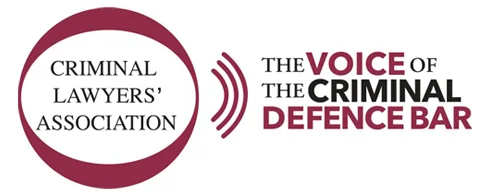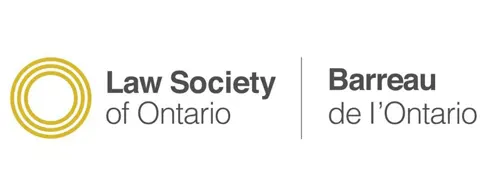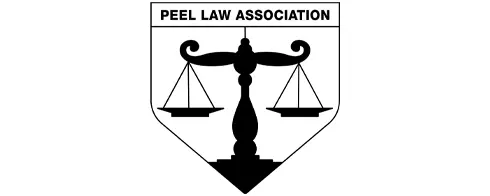Understanding Fraud Charges
Fraud charges in Canada are serious offences under the Criminal Code of Canada and can have far-reaching consequences. Fraud involves intentionally deceiving another party to cause financial or personal harm, and a conviction can lead to significant penalties, including jail time, fines, and a criminal record. Fraud charges can also impact your reputation, career, and future opportunities.
What is Fraud?
Fraud is defined under Section 380 of the Criminal Code as using deceit, falsehood, or other dishonest means to deprive someone of their property, money, or other valuables. Fraud can take many forms, including:
- Credit Card Fraud: Using someone else’s credit card or card information without permission.
- Cheque Fraud: Creating or altering cheques to deceive a bank or individual.
- Mortgage Fraud: Providing false information to obtain a mortgage loan.
- Insurance Fraud: Making false claims to collect insurance payouts.
- Employee Theft or Fraud: Misappropriating funds or assets from an employer.
- Identity Theft: Using someone else’s personal information to commit fraud.
Fraud can also involve sophisticated schemes, such as securities fraud or Ponzi schemes, that may affect multiple victims and large amounts of money.
Possible Penalties for Fraud
Penalties for fraud charges can vary depending on the value of the alleged fraud and whether the Crown proceeds with the charge as an indictable offence or a summary conviction offence. Key factors affecting sentencing include the amount of financial loss, the sophistication of the scheme, and the defendant’s criminal history. Possible penalties include:
- Imprisonment: Fraud over $5,000 can lead to up to 14 years in prison, while fraud under $5,000 can carry a maximum of 2 years for a summary conviction or up to 10 years for an indictable offence.
- Fines: Courts may impose fines based on the scale of the fraud.
- Restitution Orders: The court may order repayment to compensate victims for financial losses.
- Probation: Conditions may include restrictions on finances, employment, or regular check-ins with a probation officer.
Defending Fraud Charges
Being charged with fraud does not mean you will be convicted. There are various defences available, depending on the circumstances, including:
- Lack of Intent: Fraud charges require proof of intentional deceit. If you did not knowingly mislead anyone or acted without dishonest intent, this can be a strong defence.
- Mistaken Identity: In cases where fraud schemes involve multiple parties, it may be possible to argue that you were not responsible for the fraudulent activities.
- Duress or Coercion: If you were pressured or threatened into participating in fraudulent activity, this may be a defence.
- Entrapment: If law enforcement induced you to commit fraud, entrapment may be a viable defence.
A knowledgeable criminal defence lawyer, Manbir Nirwal, can assess your case, examine the evidence, and develop a defence strategy tailored to your situation, including Mischief charges.

Why Hire Nirwal Law for your Fraud Charges?
Fraud charges are complex, and a conviction can have serious implications for your future, particularly if you work in finance or a position of trust. Experienced criminal defence lawyer Manbir Nirwal understands the intricacies of fraud law and can provide the strong representation you need to protect your rights, negotiate a favorable resolution, or present a thorough defence in court.
At Nirwal Law, we have extensive experience defending clients against fraud charges, from minor allegations to complex, high-stakes cases. Our goal is to provide the best criminal lawyer services and minimize the impact on your life and help you navigate the legal process with confidence. If you’re facing fraud charges, contact Brampton Criminal Lawyer today to discuss your case and your defence options all over Ontario.

Key Questions About Fraud Defense
Common Inquiries Regarding Legal Representation for Fraud Charges in Ontario
Nirwal Law handles a wide range of fraud cases, including financial fraud, identity theft, credit card fraud, and insurance fraud. Our experienced team is skilled in navigating the complexities of these charges and providing effective legal defense strategies tailored to each case.
Defences may include lack of intent, mistaken identity, proving authorization for the transactions, or demonstrating that the alleged deceit was not intentional. An experienced defence lawyer can help build a strong case based on your situation. Defending against fraud charges involves a thorough examination of the evidence and circumstances. At Nirwal Law, we explore every avenue, including challenging the validity of the evidence and demonstrating a lack of intent to defraud. Criminal Defence Lawyer Manbir Nirwal’s goal is to protect your rights and work towards a dismissal or reduction of charges.
Penalties for fraud convictions can include fines, restitution, and imprisonment, depending on the severity of the offence and the amount involved. Our legal team at Nirwal Law works diligently to minimize these penalties, aiming for the most favorable outcome through negotiation or trial.
In some cases, it may be possible to have fraud charges expunged from your record, depending on the specifics of your case and jurisdiction. At Nirwal Law, we provide guidance on post-conviction relief options and work to clear your record when possible.
Fraud cases are complex and require specialized legal knowledge. Having a lawyer from Nirwal Law ensures that your rights are protected and that you receive expert guidance throughout the legal process. Our team is dedicated to building a strong defense and achieving the best possible outcome for your case.
Fraud involves intentionally deceiving someone to obtain property, money, or other benefits. Under Section 380 of the Criminal Code, fraud can include activities like credit card fraud, insurance fraud, identity theft, and embezzlement.
Proving fraud requires evidence of deceitful intent, such as false representations, forged documents, or misleading information. The prosecution must demonstrate that you knowingly engaged in deceptive practices to obtain a benefit.
Paying restitution can be considered by the court during sentencing and may lead to reduced penalties or alternative sentencing options. However, it does not automatically result in the dismissal of charges.
Client Reviews
EXCELLENTTrustindex verifies that the original source of the review is Google. Had a great experience working with Manbir from start to finish. He walked me through every step, gave clear and practical advice and helped achieve a solid outcome. Felt supported the whole way through. Would definitely recommendTrustindex verifies that the original source of the review is Google. Just hired manvir he seems very transparent about what is going on I'm very confidentTrustindex verifies that the original source of the review is Google. Manbir is an amazing criminal defense attorney. From our very first meeting, he listened carefully, making sure to answer all my questions in plain language, and he mapped out a clear strategy. His courtroom expertise and dedication gave us an excellent outcome, and his compassion and communication made such a stressful process ten times more manageable. If you need a knowledgeable, professional advocate who truly cares, this is him. I highly recommend Manbir!Trustindex verifies that the original source of the review is Google. Manbir is by far a very competent lawyer. His knowledge and expertise are exceptional. Highly Recommend him.Trustindex verifies that the original source of the review is Google. best criminal lawyer in brampton they provided the best suggestions which was required.Trustindex verifies that the original source of the review is Google. Manbir Nirwal is an intelligent lawyer who goes to the depth of any case he handles. He is an honest and friendly person to talk to. I will definitely recommend him if you are looking for a good lawyer.Trustindex verifies that the original source of the review is Google. Great service and knowledgeable staff.
Contact Us for Legal Assistance
Reach Out for Expert Legal Support in Fraud Defense Cases







